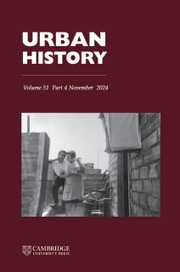No CrossRef data available.
Article contents
Review of periodical articles: Pre-1500
Published online by Cambridge University Press: 01 May 1999
Abstract
Survey the world . . . from Ireland to Japan: the medieval town is everywhere. Whether in Europe or Africa, India, the Slav lands or the Far East, no self-respecting country now lacks its examples of civic life during the first fifteen centuries of the Christian era. As a broad cultural phenomenon, the rediscovery of urbanism in this historical period is both ensnaring and liberating at the same time. The snare is the difficulty of knowing when a proposed comparison – whether made between continents, or within a much smaller area – is not the mere imposition upon unfamiliar evidence of a model imported from elsewhere. After years of European insistence on the otherness of the east, it would be ironic if all non-European cultures were now to become absorbed in a single historical framework, constructed upon part of the experience of post-Roman western Europe. And Europe itself, as perhaps does not need to be stressed these days, is bound by no ‘natural’ unity of experience. On the other hand, a genuinely comparative urban history is liberating. It opens the possibility of deeper knowledge of a particular local society, through research which registers real comparisons yet which is at the same time open to surprise. As Bloch taught, there is more to be learned from distinguishing differences in past cultures than from accumulating similarities. Yet neither of these projects, and in particular the first, can profitably be pursued for long on a narrowly insular front.
- Type
- Book Review
- Information
- Copyright
- © 1999 Cambridge University Press


